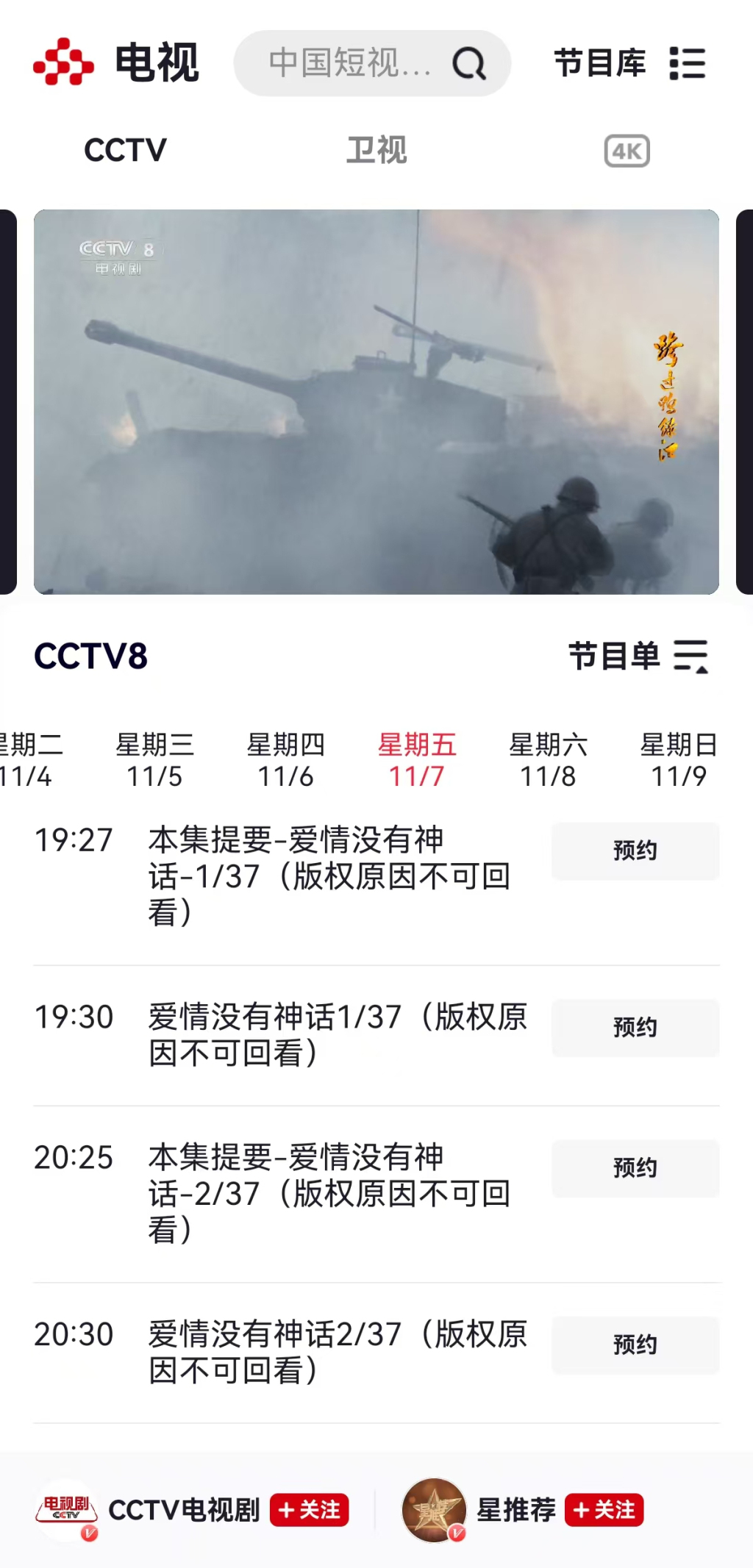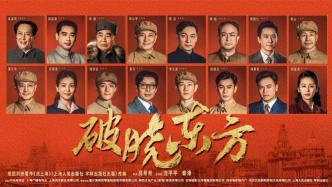
"Dawn of the East", broadcast on CCTV-1's prime time from December 23, is adapted from the documentary literary work "Battle Shanghai" by Shanghai historian Liu Tong. Long Pingping and Qin Qin are the chief scriptwriters, and Gao Xixi directs. This main creative team, which can be called "the top match for major revolutionary themes", makes "Dawn of the East" a well-deserved finale in 2022.
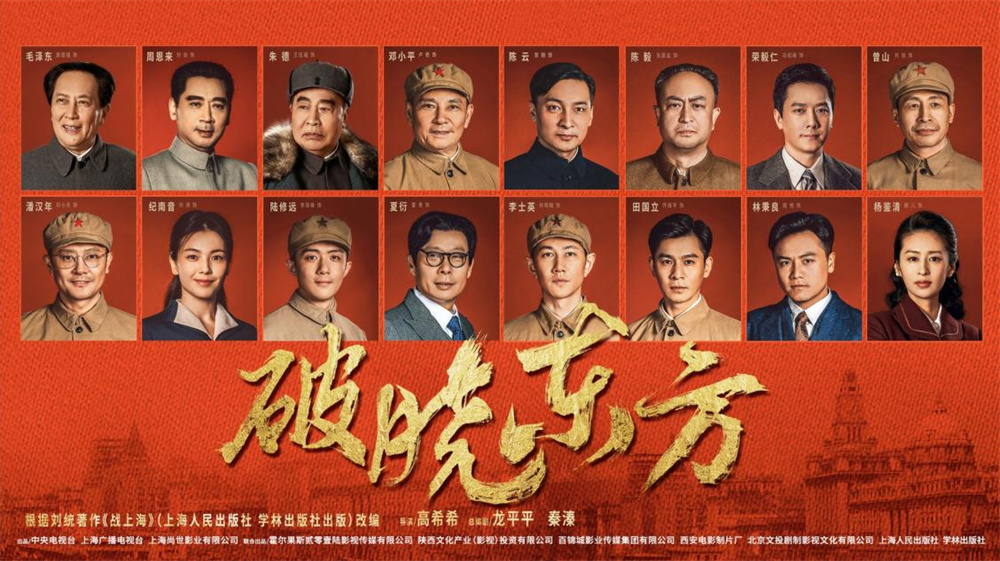
"Dawn in the East" poster
"Dawn of the East" begins at the end of December 1948. The Battle of Huaihai is about to win the final victory, and the Battle of Crossing the River is already under planning. The rhythm of the plot is quite tight. By the end of the second episode, our party will win the overall victory in the battle of crossing the river. The PLA crossed the Yangtze River, liberated Nanjing, and will soon liberate Shanghai.
The highly effective narrative closely revolves around Mao Zedong's famous speech at the Second Plenary Session of the Seventh Central Committee of the Communist Party of China, that is, "We are not only good at destroying the old world, but we are also good at building a new world." What the series tries to answer is: Why can the Chinese Communist Party—why our party can successfully destroy the old world, and why our party can build a new world well.
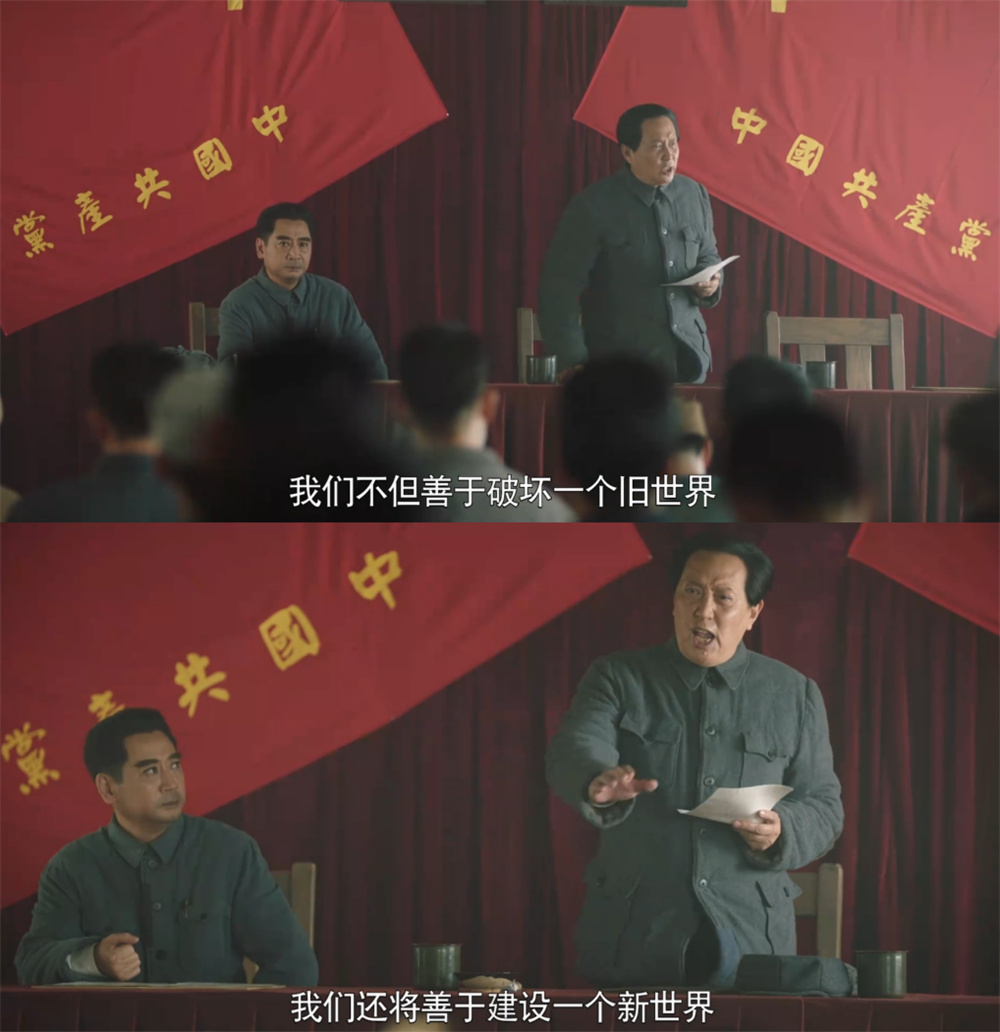
Why can the Communist Party
When answering the first question, "Dawn of the East" told the story of Li Bai. The revolutionary hero Li Xia in multiple versions of "The Eternal Wave" in the history of literature and art is based on Li Bai. In 1948, the dawn of victory in the War of Liberation had appeared. The dying Kuomintang authorities relied on the latest equipment and technology provided by the United States to detect the location of Li Bai's secret radio station by cutting off power in Shanghai districts. In the early morning of December 30, 1948, the top-secret military intelligence on the Yangtze River defense map must be reported in time. As long as there are radio waves, Li Bai will be exposed. But there is nothing more important than sending out information. Li Bai risked his life and raced against time to send a telegram, and sent the last telegram affectionately to his comrades: "Farewell, dear comrades!"
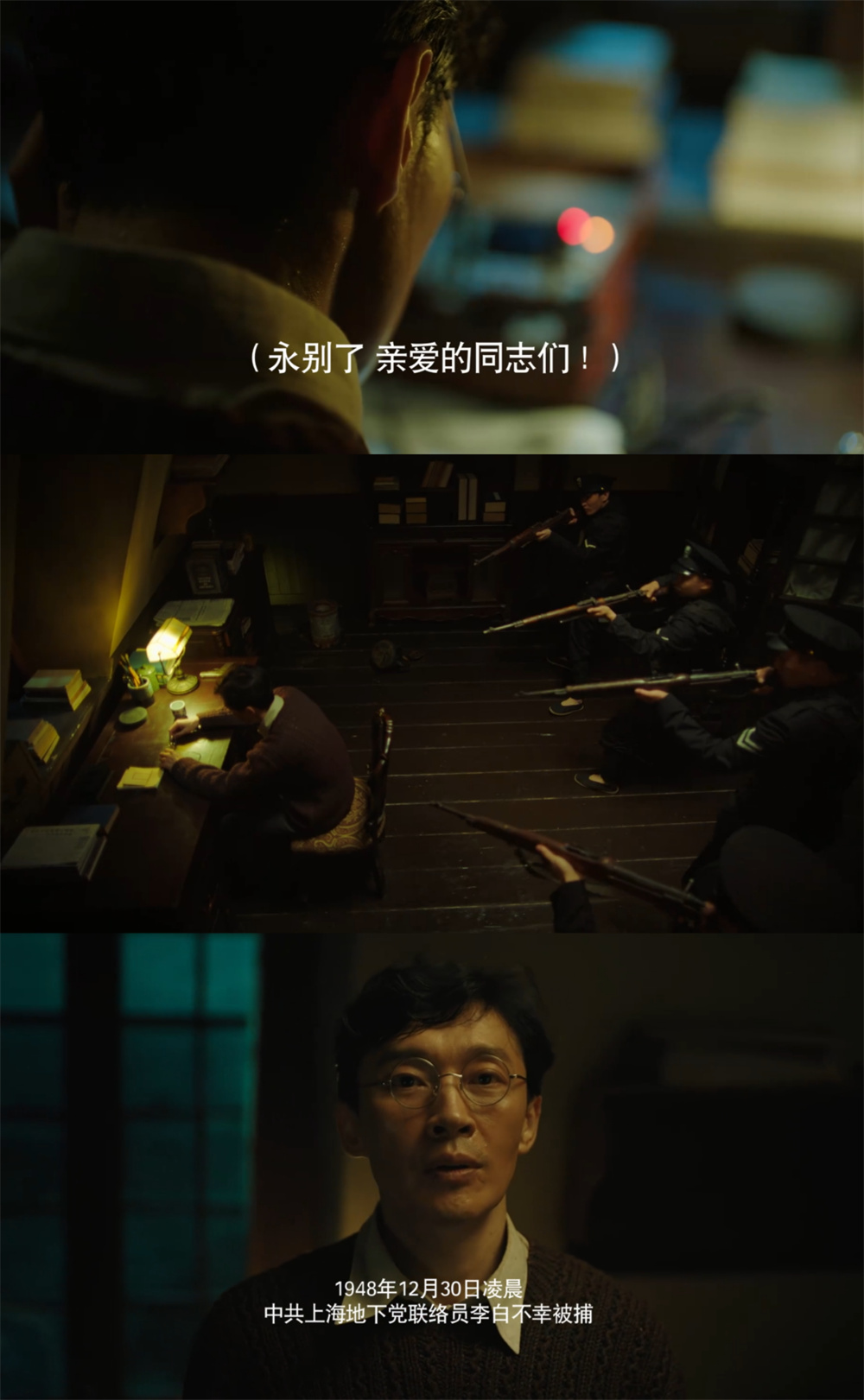
Li Bai was arrested
Li Bai was arrested bravely, and then he was brutally ravaged by the Kuomintang, but he regarded death as home and kept his mouth shut.
Although the audience is quite familiar with "The Eternal Wave", "Dawn of the East" still brings strong shock and emotion to the audience through a few short scenes. The scene of Li Bai swallowing the telegram and seeing death as home reproduces the heroic image of the Chinese Communist Party who made a heroic sacrifice for the cause of national liberation, and eulogizes the patriotism and heroism of the hero who has firm beliefs, dares to take responsibility, and disregards personal life and death for the party and the people Spirit.
This is also the purpose of telling the story of Li Bai in "Dawn of the East": it is precisely because our party has countless heroes like Li Bai that we can successfully "destroy the old world".
Corresponding to the soldiers of our party, the Kuomintang reactionaries presented in the play, from Chiang Kai-shek to the local hawks and dogs, are busy attaching themselves to the United States, with the calculation of fighting for power and profit. It can only be a doomed outcome.
In addition to the hero's perspective, the CCP's success in "destroying the old world" also lies in our party's "people's perspective": doing everything for the people and serving the people wholeheartedly.
At the beginning of the series, at the end of 1948, Liu Bocheng, commander of the Central Plains Field Army, and Chen Yi (played by Zhang Jiayi), commander of the East China Field Army, went to Xibaipo together to prepare to attend a meeting of the Political Bureau of the Central Committee. I was still late when I rushed to Xibaipo. Zhou Enlai asked them why they had walked for so long, and Liu Bocheng said, "Mr. Chen has to take care of the fellow villagers in the snow, make way for the front team, and correct the discipline of the troops. It is too late to come and go."
At this time, Mao Zedong (played by Tang Guoqiang) said, "It is not too late to do things for the common people." Through such small details, Yan Guo seamlessly embodies all the original mission of our party for the people.
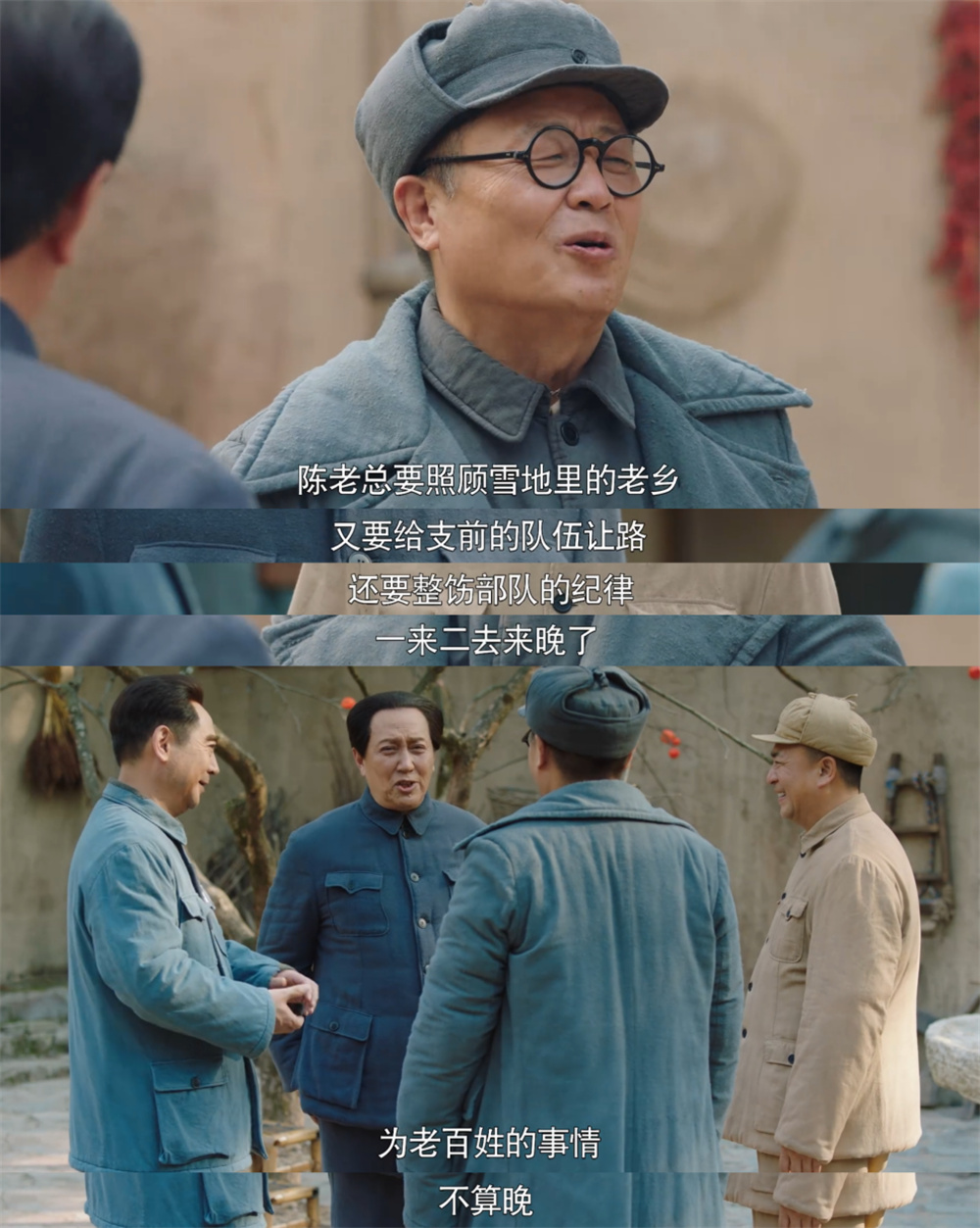
The details reflect the people's perspective of our party
The first two episodes also use a certain amount of space to present the efforts made by our party to rescue Huang Yanpei and other democrats. Huang Yanpei appeared here, and the screenwriter had a lot of meaning.
Mao Zedong and Huang Yanpei had a famous "cave pair" in 1945. Huang Yanpei came to Yan'an to express his feelings, hoping that the Chinese Communist Party would find a new way out of the domination of the historical cycle rate. Mao Zedong said that we have found a new way, and we can jump out of this cycle rate. This new path is democracy. Only when the people are allowed to supervise the government can the government dare not relax. Only when everyone stands up and takes responsibility, will the government not die.
After successfully transferring Huang Yanpei from Shanghai to Beijing in 1949, Mao Zedong invited Huang Yanpei to his residence as a guest. The two continued their previous conversation in the cave, and Huang Yanpei asked Mao Zedong about democracy. Mao Zedong's answer still reflects the people's perspective of our party doing everything for the people and relying on the people. It is in the vast ocean of the people that our party is like a fish in water, bringing disaster to the enemy and successfully destroying the old world.
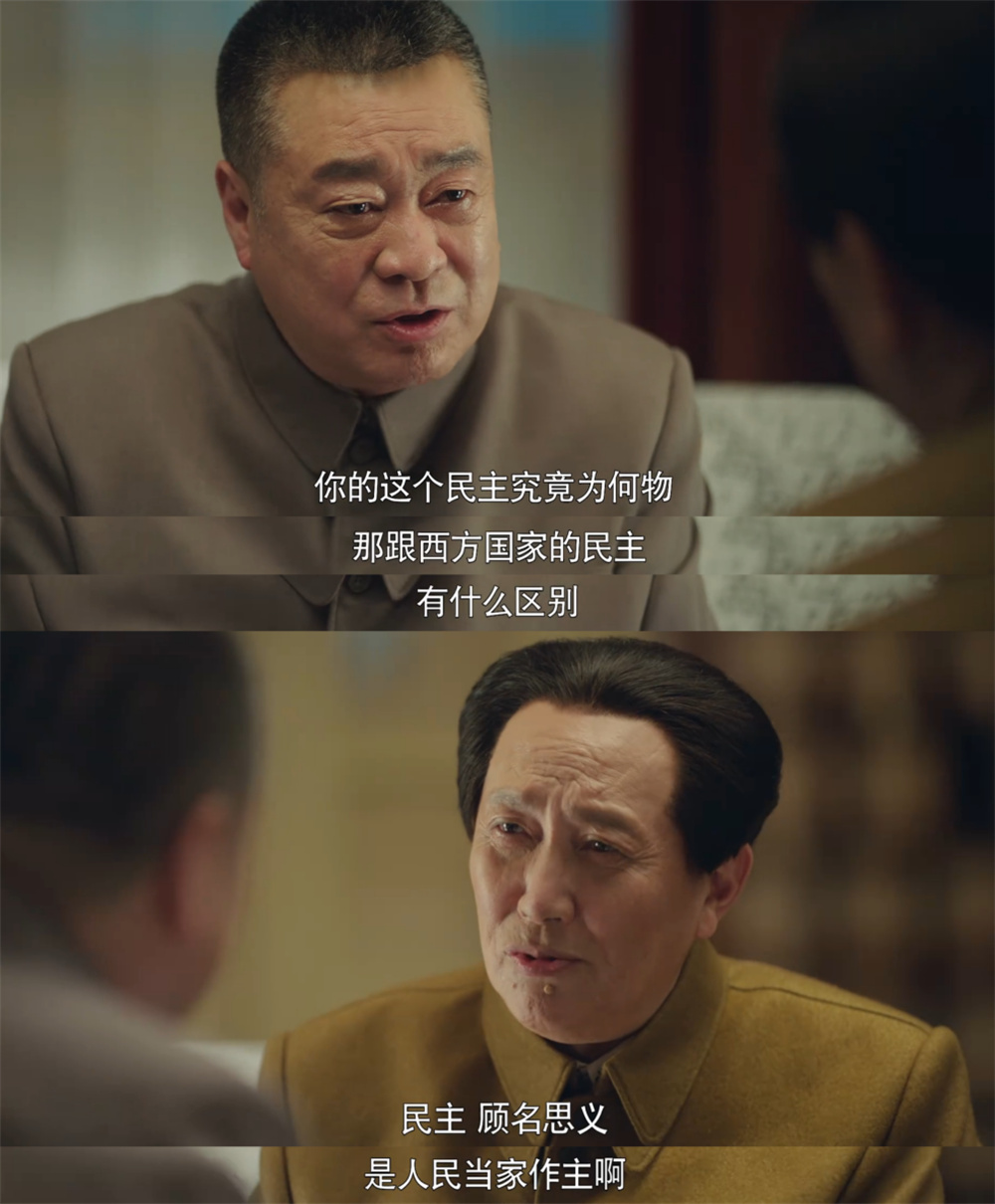
In 1949, the meeting between Mao Zedong and Huang Yanpei at Shuangqing Villa
Later, Huang Yanpei mentioned the question of "how to build a new world". For example, Shanghai is a window to the world, but now that there are soldiers on both sides of the Yangtze River, how to preserve these cities as much as possible?
Mao Zedong also thought a lot about this. "Liberating Shanghai is not a problem. It is a big problem to gain a firm foothold in Shanghai, restore and develop the economy as soon as possible, and let the war-torn people recuperate."
This brings us to the highlight of "Dawn of the East": how to build a new world? This is also the uniqueness and originality of the play "Dawn of the East": "There is no typical work about how the Communist Party of China took over power, consolidated power, and managed a central city after the founding of New China." "Dawn of the East " fills this gap.
The play does not shy away from mentioning that after the liberation of Shanghai, it will be difficult to manage Shanghai. On the one hand, our party really lacked experience in this area at that time. For example, Chen Yi himself admitted that he wanted to go to Shanghai, but he was afraid of going to Shanghai. "Managing the city and managing the army are two different things. I have more than 20 years of experience in managing the army. It's no problem. But I don't have a day's experience in managing the city. I don't know. Where to start". When the Communist Party of China transformed from a revolutionary party to a ruling party, it was indeed faced with the test of how to transform from a fighting PLA to a professional team capable of managing modern metropolises.
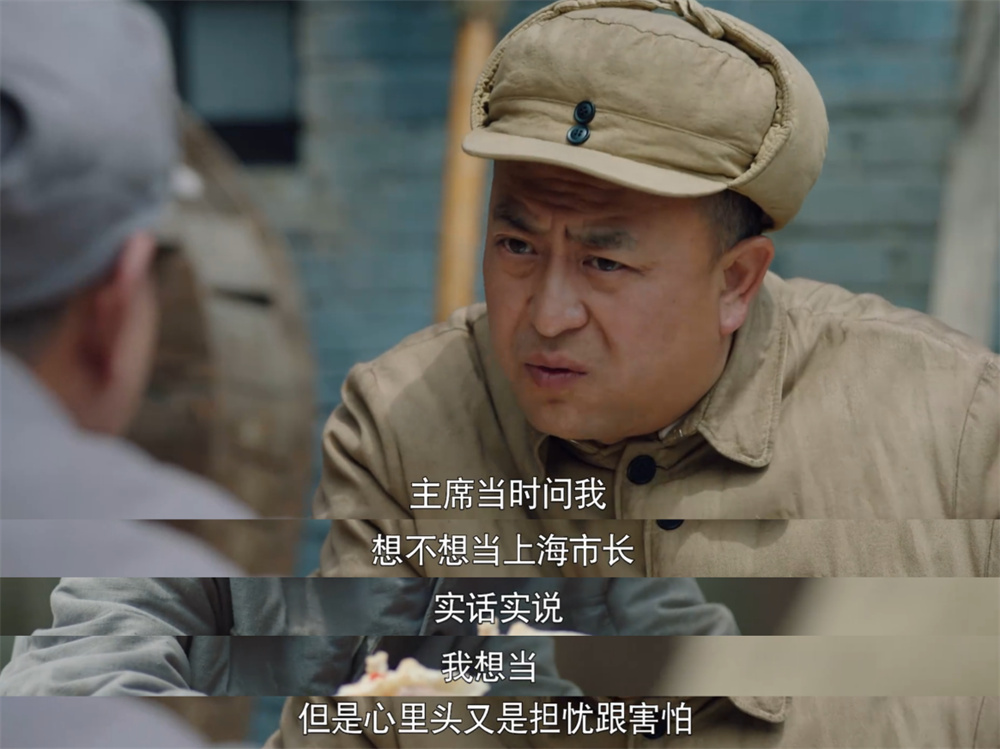
At the beginning, Chen Yi had no idea how to manage Shanghai.
On the other hand, big cities were not easy to manage at that time, especially in Shanghai as an economic center. After years of war, Shanghai has been tortured and riddled with holes. How can it restore its vigor and vitality in a short period of time? What's more, when the dying KMT left Shanghai in embarrassment, it destroyed Shanghai in such a large and crazy manner that it was unique, deliberately leaving our party with a mess that could not be governed in the eyes of the world.
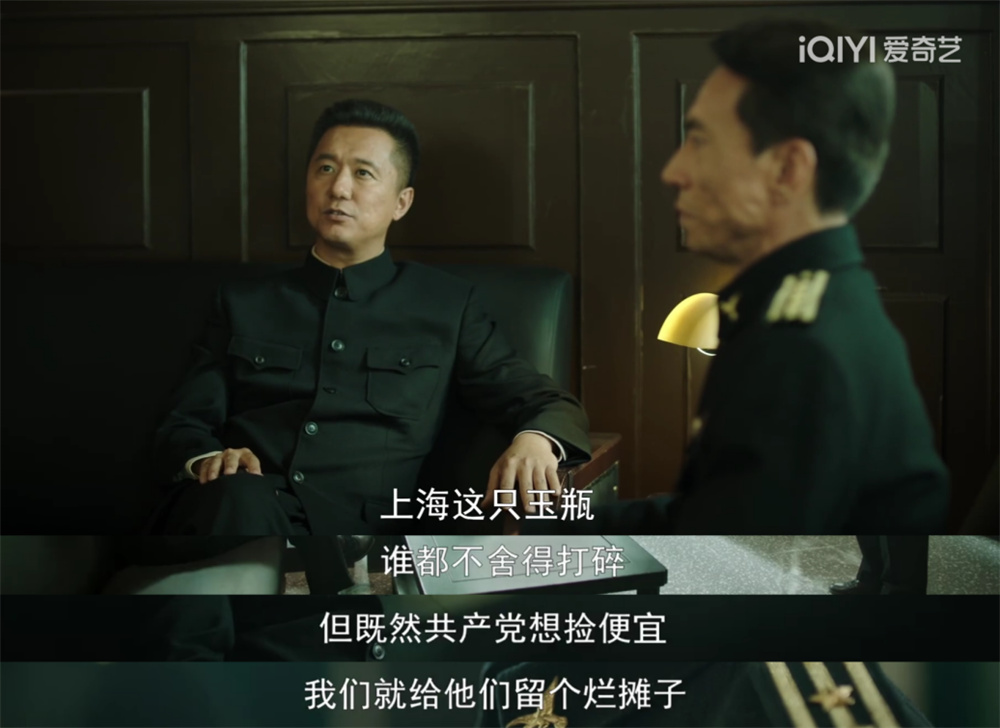
KMT reactionaries intentionally sabotage Shanghai
At that time, international public opinion constantly bad-mouthed our party's ability to "build a new world," believing that even if our party could conquer the country, it would not be able to cure the country. For example, Leighton Stuart, the U.S. ambassador to China at the time, was very "calm" in the face of the overwhelming situation of the Communist Party.
Therefore, Mao Zedong, who was far-sighted and prepared for danger in times of peace, told Chen Yi before the battle of crossing the river: "Now we are taking over Shanghai and managing Shanghai, which is a test of our ability to govern in a big city. This is another new battlefield."
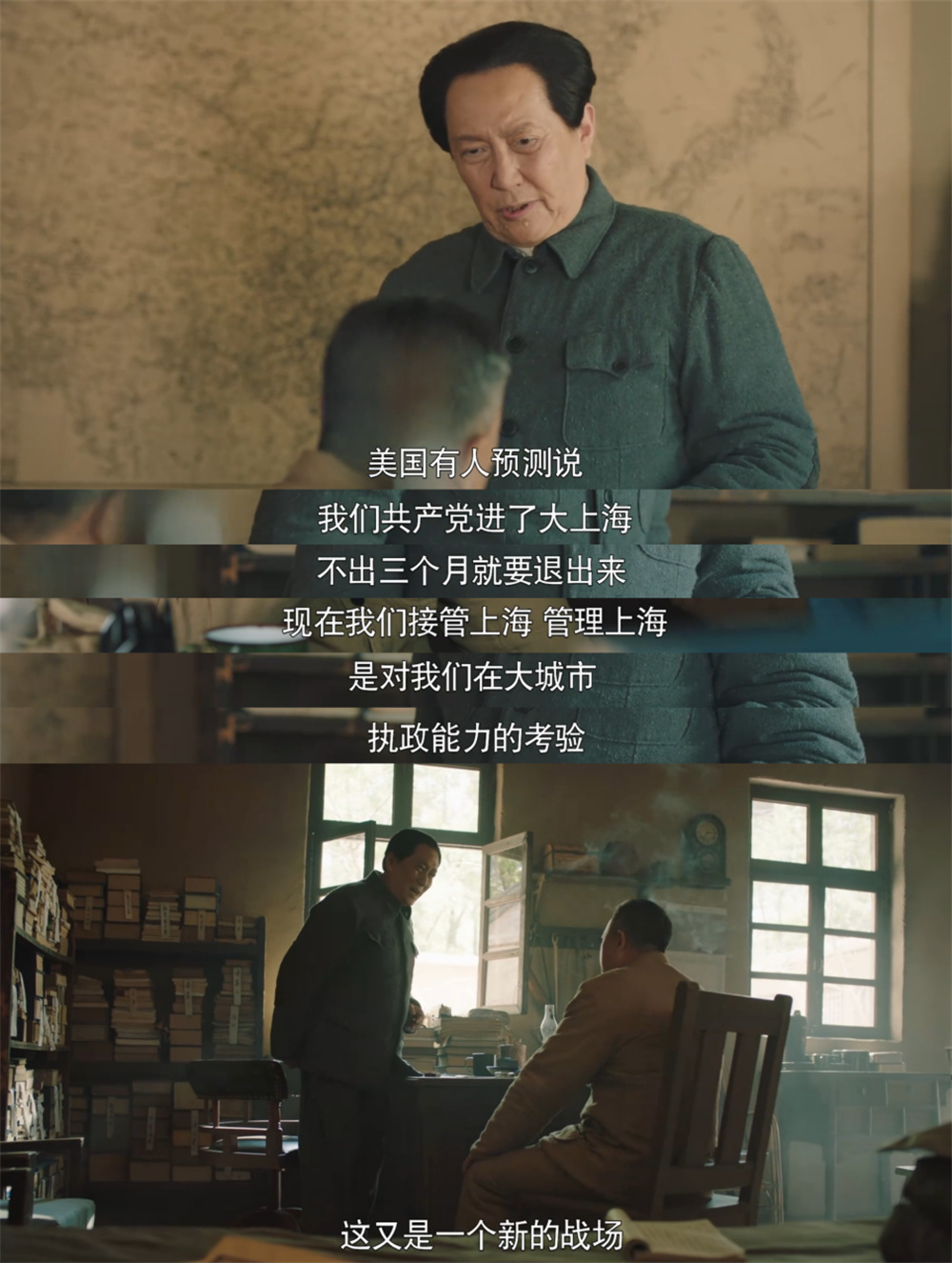
How to manage Shanghai well is another "big test" for the Communist Party
The focus of the follow-up plot of "Dawn of the East" will revolve around this "new battlefield". Through our party's liberation of Shanghai and taking over the political power, it will take more than a year to create a new, full of vigor and vitality in the mess left by the Kuomintang. The real miracle of the new Shanghai shows our party's ability and courage to "build a new world", and further answers why the Chinese Communist Party can, and why only the Chinese Communist Party can build China well. The new chapter of this magnificent drama is worth looking forward to.


